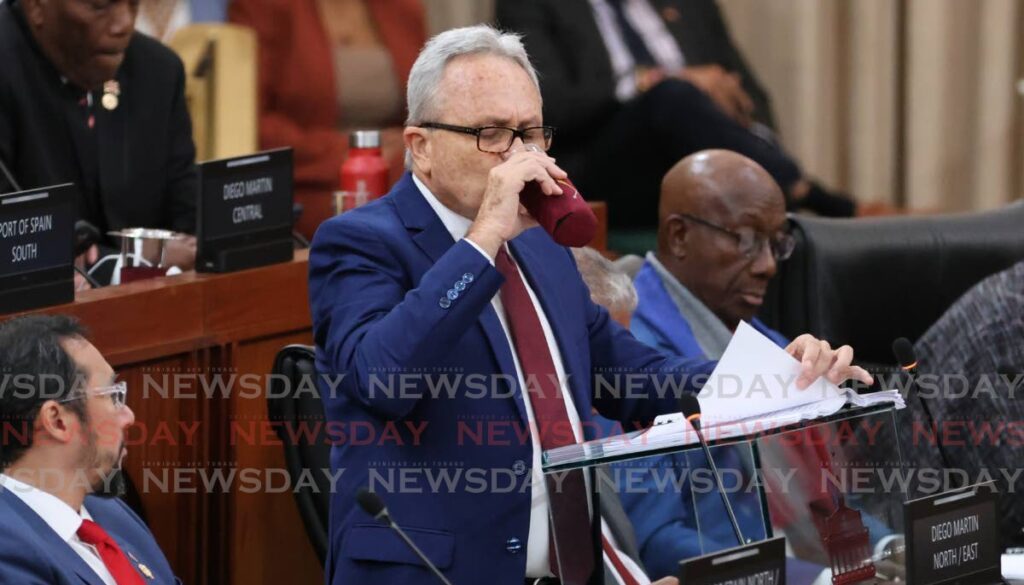What value for our $26b?

WHEN IT comes to national security, Colm Imbert struck a gloomy note on September 30.
In sharp contrast to the optimism and buoyancy throughout his budget presentation, the minister was almost pessimistic when it came to crime.
The situation, he said, was “intractable,” “intransigent” and had defeated his government’s “best efforts.”
While Mr Imbert was arguably tempering expectations in an election year, the defeatist suggestion of his language undermines the very confidence required to make headway. That’s not how things should be.
Of all the factors affecting the economy, none is more insidious and immediate than crime. Whatever theoretical benefits might accrue through the budget’s lofty plans and promises, will be erased by a spiralling murder toll.
This reality is reflected in Mr Imbert’s concession to the need to promulgate fresh measures. These include 2,000 new vehicles for the TTPS, the assignment of a special unit to deal with home invasions, new vessels for the Defence Force and a reformed digital infrastructure.
This mixed bag, however, may not have a deep impact.
The new vehicles come amid plans to increase recruitment numbers. If there are to be more officers, it is only natural for there to be more cars. Less straightforward is whether response times and detection rates will improve.
The related acquisition of more body cameras is also meaningless when there appears to be no desire on the part of subordinate officers to wear them or on the part of superiors to enforce them.
More stark and meaningful is Imbert's stark admission that notwithstanding $26 billion being spent on the Police Service over the last ten years, 3,986 murders still occurred over that period with the use of illegal firearms.
A lot of the spending relates to recurrent expenditure, but that is no consolation. Many do not feel safer today than they did ten years ago.
The budget’s reduced allocation for national security (it decreased from $6.9 billion in 2024 to $6.1 billion for 2025) perhaps acknowledges the serious issue of whether citizens are getting value for money. Nonetheless, the allocation is still substantial, amounting to the equivalent of the spending of four smaller ministries combined.
The real cost of crime is not limited to police expenditure.
Crime places pressure on health, judicial and prison systems. It hinders productivity. It dampens consumer spending. It scares away investors. It increases brain drain. It dissuades people from entrepreneurship. It destroys Tobago's tourism. It is not just a public health or social matter – it is an economic one.
Which is why Mr Imbert’s stance was so despairing.
Even if crime statistics somehow miraculously abate on the eve of the election, on the strength of new measures, for the PNM it may very well be too late to change the narrative.
There are many questions that can be asked of government. Today, we ask: What value have we gotten for this $26 billion?

Comments
"What value for our $26b?"